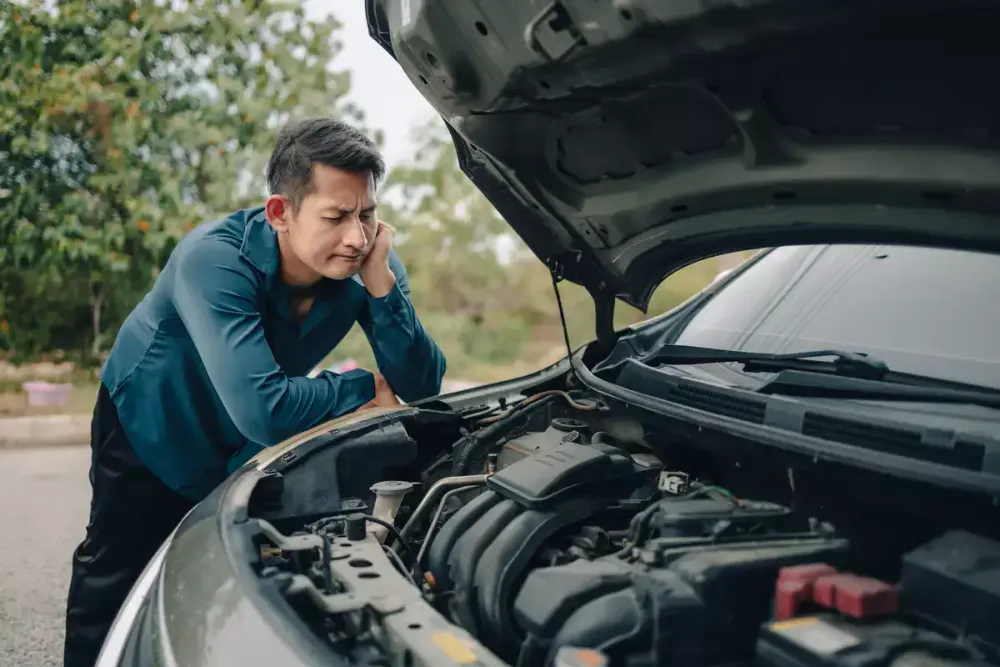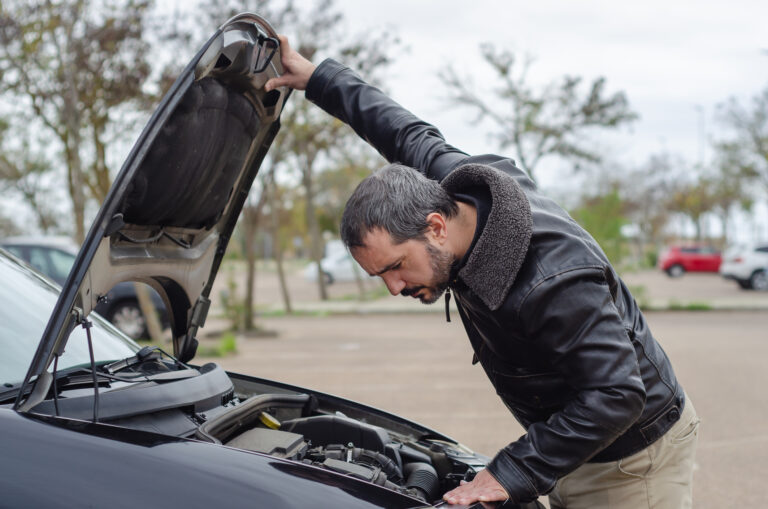A car making noise upon starting that diminishes shortly after could stem from various sources. Common reasons include belt or pulley issues causing squealing sounds, starter motor problems resulting in grinding noises during startup, or engine component issues such as valves or lifters making noise until they warm up. Additionally, exhaust system concerns like rattling or knocking sounds might arise due to loose parts or a damaged catalytic converter. Low oil levels or degraded oil can also lead to temporary noise until proper circulation occurs.
In colder climates, certain components might be noisier until they warm up and expand. It’s crucial to note the specific nature and timing of the noise and seek professional inspection if it persists or worsens over time to prevent potential larger problems.
How to Identify Common Car Startup Noises?

These distinct noises and their associated causes can help in diagnosing and resolving the specific issues that occur during a car’s startup process.
Types of noises commonly heard during startup
Clicking
Clicking sounds typically indicate an issue with the starter motor or a low battery. It could be due to a faulty solenoid or insufficient power reaching the starter motor. This sound is distinct and repetitive, usually heard when the key is turned.
Grinding
Grinding noises often suggest problems with the starter motor gear engaging with the engine flywheel. In addition, this noise can occur if the starter motor gear isn’t properly aligned or if the flywheel teeth are worn. It can lead to potential damage if not addressed promptly.
Whining
Whining or high-pitched sounds might point to issues with the alternator, serpentine belt, or power steering pump.
A loose belt or a worn-out pulley bearing can create this noise. A failing alternator or power steering pump could also cause such a sound during startup.
Screeching
Screeching sounds often indicate belt slippage or tensioner problems. When belts are worn or loose, they may slip over the pulleys, creating a high-pitched screech. This noise might be more prevalent in cold weather or when the belts are damp.
Potential causes of noises
Starter motor issues
Clicking, grinding, or lack of response when starting the vehicle can indicate problems with the starter motor. Common issues include a faulty solenoid, worn-out brushes, or a damaged armature.
Weak or dying battery
A weak or dying battery might cause clicking sounds when starting, indicating insufficient power to engage the starter motor. Low voltage can also lead to slow cranking or no response at all.
Belt or pulley problems
Loose, worn, or misaligned belts can create whining or screeching noises during startup. Additionally, damaged pulleys or tensioner issues can contribute to belt-related sounds.
Engine component issues
Internal engine problems, such as issues with the timing chain, water pump, or other engine accessories, could generate abnormal noises during startup. These noises might be varied and require thorough inspection.
What are Essential Car Startup Diagnostic Procedures?
Performing these diagnostic steps systematically can help in identifying potential issues related to electrical connections, battery health, and starter motor functionality.
Visual inspection of the engine bay
Checking for loose connections
Examine all electrical connections, including battery terminals, starter motor connections, and ground connections. Loose or corroded connections can cause electrical issues resulting in startup problems. Ensure connections are tight, clean, and free from corrosion.
Examining belts and pulleys for wear or damage
Inspect belts for signs of wear, cracks, fraying, or looseness. Additionally, check the pulleys for misalignment, damage, or any unusual play. Worn-out belts or damaged pulleys can cause abnormal noises during startup and affect engine performance.
Testing the battery
Voltage check
Use a multimeter to measure the battery voltage. A healthy battery should typically read around 12.6 volts when the car is turned off. Voltages significantly below this might indicate a weak or dying battery.
Load test
Perform a load test to assess the battery’s capability to deliver power under load. This test determines the battery’s ability to sustain voltage when the starter motor draws power during cranking. A failing battery might show a significant voltage drop under load, indicating it needs replacement.
Starter motor inspection
Listening for specific sounds while starting
Pay attention to the sounds emitted during startup. Clicking or grinding noises often point to starter motor issues. A healthy starter motor produces a smooth cranking sound without unusual clicks or grinding.
Checking for loose or damaged components
Inspect the starter motor for loose bolts, damaged wiring, or signs of corrosion. Ensure the connections to the starter motor are secure and free from damage. Additionally, check for physical damage or wear on the starter motor housing and gears.
How to Fix Car Startup Problems Based on Diagnosis?

Each potential cause requires specific actions for resolution. Proper diagnosis ensures that the correct components are targeted for repair or replacement, minimizing unnecessary expenses and ensuring the effective resolution of the startup issue.
Based on diagnostic findings, determining the root cause
After conducting diagnostic tests and inspections, pinpointing the exact cause of the startup issue is crucial. Analyzing the results of visual inspections, battery tests, and starter motor examinations will help in identifying the root cause, whether it’s related to the starter motor, battery, belts, pulleys, or engine components.
Potential solutions for different causes
Replacing a faulty starter motor
If the diagnostic tests confirm starter motor issues, replacing the faulty starter motor might be necessary. Ensure the replacement motor is compatible with the vehicle’s make and model. Proper installation and testing of the new starter motor are crucial to ensure optimal performance.
Recharging or replacing the battery
If the battery is diagnosed as the root cause, options include recharging it (if applicable) or replacing it with a new one. Ensure the replacement battery has the correct specifications and capacity for the vehicle.
Proper maintenance, such as keeping terminals clean and securely tightened, is also essential for battery health.
Belt or pulley replacement or adjustment
Worn-out or damaged belts and pulleys may need replacement or adjustment. Replacement involves using high-quality belts that match the manufacturer’s specifications. Tensioners and pulleys should be inspected and replaced if necessary to maintain proper belt tension and alignment.
Addressing engine component issues
Insights: Engine component issues detected during diagnostics might require specific repairs or replacements. For instance, problems with the timing chain, water pump, or other engine accessories should be addressed by qualified mechanics. Repairs could involve fixing or replacing the affected components to ensure proper engine function.
FAQ’s
When I start my car it makes a rattling noise?
A rattling noise during startup could indicate various issues, such as loose components, worn-out parts, or problems with the engine’s timing.
Is engine rattling serious?
Engine rattling can range from minor issues like loose heat shields to serious problems like worn-out bearings or timing chain issues, which might require immediate attention.
Is it OK to drive with rattling noise?
It’s generally not advisable to drive when the engine makes unusual rattling noises as it might indicate underlying problems that could worsen if not addressed promptly.
What is an example of a rattling sound?
An example of a rattling sound could be a metallic noise that occurs when the engine starts or while driving, often indicating loose components or worn-out parts.
Why is my engine making a loud noise?
A loud noise from the engine could result from various issues, including problems with the exhaust system, worn-out bearings, damaged belts, or issues with engine timing.
Does timing chain make noise?
Yes, a timing chain can make noise when it’s worn-out or loose, causing a distinct rattling or grinding noise coming from the engine.
Final Words
In summary, it’s important to listen to your car’s noises when starting it up. Sounds like clicking, grinding, whining, or screeching might mean problems with the starter, battery, belts, pulleys, or engine parts. To figure out what’s wrong, check connections, test the battery, and look at the starter motor.
Fixing the issue might mean changing a bad starter, getting a new battery, fixing or swapping belts and pulleys, or dealing with engine problems. Remember, keeping an ear out for weird noises and giving your car regular check-ups can stop big problems and keep your car in good shape.

